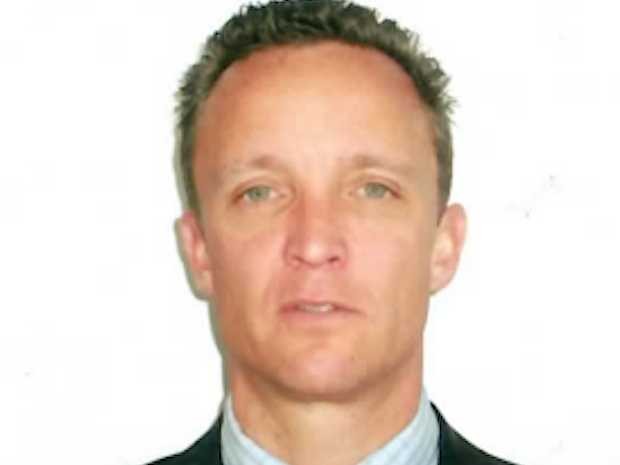Talisman Assets Hurt Icahn Turnaround Chances Bloomberg Business
Post on: 16 Март, 2015 No Comment

Activist Investor Carl Icahn has had mixed results with his oil and gas investments. Photographer: Scott Eells/Bloomberg
Oct. 9 (Bloomberg) — Carl Icahn, the activist investor who forced changes at Chesapeake Energy Corp. and Transocean Ltd. faces an uphill battle boosting value at Talisman Energy Inc. as the Canadian company tries to unload $3 billion of assets into a crowded market.
Icahn, who declared a 6 percent stake in the Calgary-based energy company on Oct. 7, said the shares were undervalued and he intends to discuss “strategic alternatives” with the company, according to a U.S. regulatory filing. Talisman produces gas from five regions in North America and operates internationally, with projects in the North Sea off the U.K. and Norway as well as in Indonesia.
“Unless he has a buyer in his pocket, I don’t know to what extent he can expedite the sale of the company or the improvement of the company,” Stephen Jarislowsky, chairman of Montreal-based Jarislowsky Fraser Ltd. Talisman’s fifth-largest shareholder, said yesterday in a telephone interview. “The assets are very dispersed and probably do not appeal to one buyer.”
Talisman last year replaced former Chief Executive Officer John Manzoni with Hal Kvisle, who has put a for-sale sign on $3 billion worth of properties and operations including the Norwegian North Sea assets and leases in Alberta’s Duvernay formation. The company has already shut down some international exploration to save money and may exit its planned operations in Kurdistan, Kvisle told investors on Sept. 12.
‘Constructive Input’
Talisman fell 1.5 percent to C$12.70 at the close in Toronto today, after declining 2 percent yesterday. That pared the stock’s gain this year to 13 percent, which is still better than the 11 percent increase of Calgary-based Suncor Energy Inc. and competitor Encana Corp.’s 9.9 percent decline.
“We appreciate constructive input from shareholders and take their views seriously,” Phoebe Buckland, a Talisman spokeswoman, said yesterday by phone in response to a question about how management views Icahn’s stake.
Icahn’s experience in Canada includes a failed attempt to gain control over Lions Gate Entertainment Corp. an independent film and television studio based in Vancouver and run from Santa Monica, California. The billionaire investor agreed to sell his shares in 2011 at about the same price he bought them.
Hit and Miss
Icahn, 77, has had mixed results with his oil and gas investments. Chesapeake Energy has climbed 72 percent since reports surfaced in May 2012 that Icahn had become one of the company’s largest shareholders. At Transocean, where Chairman Michael Talbert departed and the company reinstated its dividend, the stock has dropped 18 percent since the company said in January that Icahn had acquired a stake.
The market doesn’t believe Icahn can step in and make quick changes at Talisman, said John Stephenson, who helps manage C$2.7 billion ($2.6 billion) at First Asset Investment Management Inc. in Toronto.
“There’s been no interest in the Montney or the North Sea or any of this other stuff before-hand so I’m a skeptic that he’ll be able to surface value,” Stephenson said by phone. “There’s clearly no market for what they’re trying to peddle, unfortunately for them.”
Icahn didn’t respond to interview requests left with his assistant yesterday.
Oil Assets
Talisman’s troubles began when, like Encana, it sold off most of its oil assets, including a stake in Syncrude Canada for C$475 million in 2007 to focus on natural gas production, said Robert Schulz, a professor at the University of Calgary’s Haskayne School of Business. In 2009, the company sold assets in Saskatchewan and Montana to TriStar Oil & Gas Ltd. and Crescent Point Energy Trust for about C$720 million in cash.
“Icahn may have underestimated the difficulty of selling Talisman’s assets,” Schulz said yesterday by phone. “It’s a buyer’s market for their Canadian assets.”
Talisman raised C$1 billion in 2008 by selling reserves that produced the equivalent of 12,000 barrels of oil a day. The company is expected to report its first annual loss since 1998, according to the average of 17 analysts’ estimates compiled by Bloomberg.
“Selling the oil assets looked like the right thing to do at the time, but then the price of gas fell,” Schulz said. “Talisman has tried without much luck to monetize their gas assets and now the LNG space is too crowded.”
‘Isn’t Focused’
Liquefied natural gas is a fluid form of the fossil fuel that is super-cooled and can be transported by ship. The price of gas has fallen by 45 percent in the past five years as the hydraulic fracturing boom in the U.S. flooded the market with cheap production. Gas settled at $3.716 per million British thermal units yesterday on the New York Mercantile Exchange.
Encana CEO Doug Suttles said last month his company will “clean” up its portfolio because Encana “isn’t focused enough.” Encana owns properties in similar formations to Talisman in Canada and the U.S. creating competition for its cross-town rival.
The cost for shareholders to own Talisman’s reserves of oil and gas is more than an investment in Encana, according to data compiled by Bloomberg. Talisman’s price to reserves, or the current share price as a multiple of oil and gas reserves, was 15.16 in the most recent period, compared with 7.6 at Encana.
‘Strategic Alternatives’

Icahn has control of 61.6 million shares of Talisman through stock and options, according to the Oct. 7 filing. Icahn, who paid about $277 million for the purchases, may have conversations with management regarding “strategic alternatives, board seats, etc.,” he said in a post on Twitter.
“I don’t think there’s some weird and wonderful structure or alternative the company hasn’t been made aware of,” said Jennifer Stevenson, vice president and portfolio manager at Dynamic which oversees C$100 billion in assets and doesn’t own Talisman shares. “The market’s speculated on asset sales, spinoffs, penalties, joint ventures, all that’s been chit-chatted about.”
Kvisle said last month that about a dozen possible buyers were looking at the company’s documents for its North Sea assets. The company is considering a joint venture in Alberta’s Duvernay formation and that it wasn’t “practical” to join any of the proposed liquefied natural gas projects in British Columbia, Kvisle said at the Sept. 12 presentation.
Shareholder Activism
Canadian companies faced 42 cases of shareholder activism in 2012, almost double the number in 2011, according to Kingsdale Shareholder Services Inc. In February, Kingsdale Chief Executive Officer Wes Hall predicted there would be even more in 2013.
Activist hedge funds including Barry Rosenstein’s Jana Partners LLC and William Ackman’s Pershing Square Capital Management LP have pressed Canadian companies to change management or spin off parts of their businesses.
In April, fertilizer producer Agrium Inc. rebuffed Jana’s attempt to get the Calgary-based company to spin off its farm-supply retail stores. Last year, Canadian Pacific Railway Ltd. cut jobs, shuttered rail yards and ran longer trains to try to increase efficiency after Ackman succeeded in getting CEO Fred Green replaced with Hunter Harrison.
Icahn’s approach to transforming Talisman may match activist shareholders’ “aggressive” patterns and hurt holders of the Canadian company’s debt, said Phil Adams, an analyst at Gimme Credit LLC.
Talisman has C$4.34 billion worth of outstanding notes, according to data compiled by Bloomberg. It is rated BBB by Standard & Poor’s and Baa2 by Moody’s Investors Service.
“The concern, obviously, is that whatever approach Mr. Icahn might pursue would be more aggressive than the path Talisman is already on, which specifically seeks to preserve the current mid-triple B ratings while pursuing strategies to increase shareholder value,” Adams said yesterday in a note.
To contact the reporter on this story: Jeremy van Loon in Calgary at jvanloon@bloomberg.net
To contact the editors responsible for this story: Susan Warren at susanwarren@bloomberg.net ; David Scanlan at dscanlan@bloomberg.net














